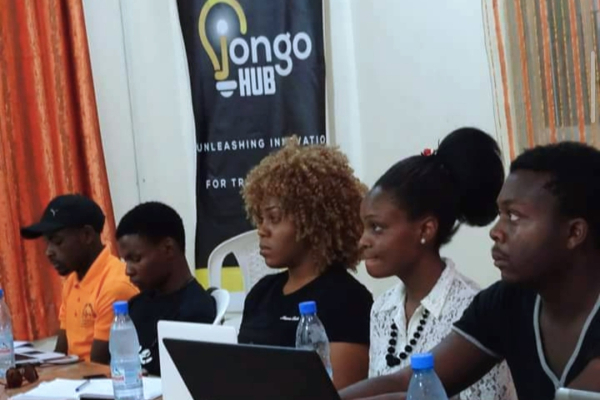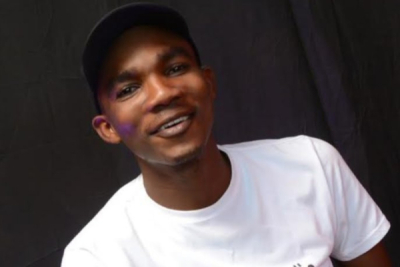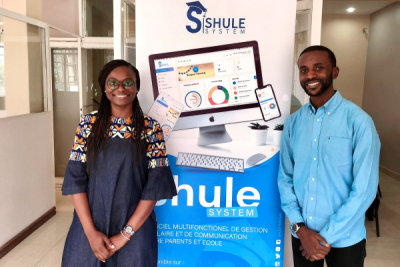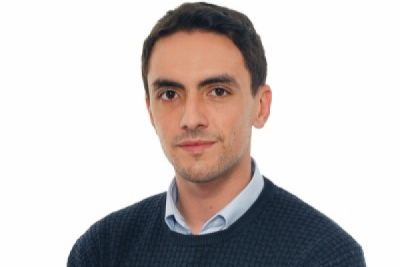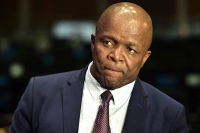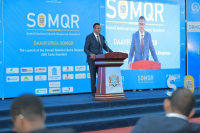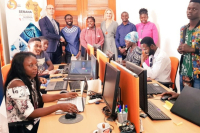The solution was launched by a Bissau-Guinean tech entrepreneur to make things easier for human resource departments.
BueloJobs is a digital solution developed by a young Bissau-Guinean start-up, to connect job seekers with opportunities.
On its website, it indicates that it is the “ digital platform that aggregates most of the job openings posted across Guinea-Bissau.”
“We enable professionals to have access and be able to apply to a greater number of job opportunities,” it adds.
The solution features a mobile application accessible on iOS and Android. Once downloaded from the Appstore or Play Store, users can create an account by entering some personal details. They will then be able to access the numerous job offers published on the platform. The start-up provides all the information needed to apply for jobs. Users can also subscribe to the platform's newsletter and receive job offers directly in their mailboxes.
BueloJobs has a blog that covers several topics. Among other things, it shares various scholarship opportunities, competitions, and tips and advice on how to improve one's profile as a job seeker. Users can also post job offers on the platform. Depending on their needs, they just have to click on the dedicated button and follow the process.
Since its launch, the Android version of the mobile application has been downloaded over a thousand times. The start-up has mentioned plans to expand outside Guinea-Bissau.
Adoni Conrad Quenum
Through its programs and services, Jongo Hub fosters the development of good and investible businesses and encourages the creation of a dynamic and innovative entrepreneurial ecosystem.
Jongo Hub is an innovation-based business support organization located in Silicon Mountain Buea, in the southwestern region of Cameroon. Founded in 2016 by Mokate Ashu, Ayeah Kermit Timngum, Enow Daniel Ashu, and Quinshie Miranda, its mission is to foster the development of high-impact innovative technology solutions.
It offers entrepreneurial support services, working with businesses to build a robust online presence and generate more conversions and revenue. Like most innovation centers and start-up incubators, it also offers coworking spaces to enable entrepreneurs to work in a friendly environment and collaborate with other wealth creators.
With Oneke John Etta Tabe as its executive Director, Jongo Hub -through its 6-month Jongo Hub Innovation Academy program- helps entrepreneurs and innovators strengthen and amplify the digital and business skills needed to survive in an increasingly competitive business environment.
The organization is a member of the AfriLabs network. Supported by Rinoo and Dufuna, it incubates businesses in various sectors including health and wellness, education and learning, and environment and green energy.
During the business incubation period, in addition to workspace, it offers entrepreneurs services like market research, user studies, ethnography and behavior change, prototype development, technical review, and product development, among others. Entrepreneurs also have access to a technology and manufacturing lab.
Jongo Hub's technology lab and multimedia studio is called Jongo Studios. It hosts a team dedicated to helping companies and SMEs establish their brands, effectively reach customers and create the desired impact.
Melchior Koba
Over the past few years, Tanzania has taken steps to orbit its satellite. But, in recent months, it is stepping up initiatives to speed up the process.
Tanzania has set up a special government team to study the country’s needs in preparation for the construction of a national satellite. Its Deputy Minister of Information, Communication, and Technology Kundo Mathew said as much on Monday, June 19 at the opening of the Information Systems Audit and Control Association (ISACA) 2023 Annual Conference, which runs until today, Friday, June 23 in Arusha.
“...We are taking time to identify our needs for the proposed National Satellite. We are mulling the intended use for the Tanzanian Satellite, will it be just for patrolling our skies, or safeguarding our resources from the air; maybe also monitoring the country’s borders digitally?” said Minister Kundo Mathew.
“There are areas dotted with big hills and mountains where it becomes impossible for the fiber optic cables to be laid through, these are where the satellite will take over to spread digital waves,” he added.
Tanzania's announcement comes at a time when African governments are showing increasing interest in space programs and stepping up investment in the sector. According to the 2022 edition of Space In Africa's annual report on the African space industry, the value of the industry is expected to reach $22.64 billion in 2026, up from $19.49 billion in 2021. The same report indicates that African nations allocated a total of $534.9 million to space programs in 2022, compared with $523.2 million in 2021.
The satellite that the Tanzanian government plans to launch will complement the 758 communication towers erected throughout the country and the 600 others to be installed soon.
It could thus be used to improve coverage of telecoms and broadband Internet services, particularly in rural or remote areas that are hardly accessible to mobile operators. These efforts will help reduce the digital divide and improve access to education and health services. According to the latest statistics from the Tanzania Communications Regulatory Authority (TCRA), the country has 61.9 million cell phone subscribers and 33.1 million Internet users.
Samira Njoya
The transaction will allow GoCampus to realize its founder’s unfulfilled business goals.
Indian tech entrepreneur Vickram Sybri recently acquired the Nigerian university networking platform GoCampus for $71,000.
The platform, which connects college students, managed to connect over 370,000 users in three countries in the space of four months, becoming a thriving platform for student interaction.
In the weeks leading to the sale, the platform experienced a shutdown and other problems that prevented it from evolving. Those obstacles forced young Nigerian entrepreneur Muili Seun (photo), founder of Go Campus, to sell his platform.
“It was a tough decision to part ways with GoCampus, but I wanted to ensure its continued success and growth. The platform faced challenges due to infrastructure limitations, resulting in occasional downtime during peak periods. By selling the platform to an established tech guru, I am confident it will receive the necessary support and resources to overcome these obstacles,” he said.
GoCampus has rapidly gained in popularity. The platform has revolutionized the way students interact, enabling them to connect to exchange and share ideas on assignments and other university-related topics.
With this acquisition, Indian entrepreneur Vickram Sybri will be able to continue the work started by Muili Seun. Well-known in the Indian and international technology spheres, his company specializes in digital marketing and building a strong and influential online presence for individuals and companies.
Samira Njoya
The solution enables schools to digitize their data, allowing parents to monitor children’s performance in real time.
Shule System is a digital solution developed by the Congolese firm Find Solution Technolgy. It lets parents access children's school records and track school-related information in real time.
According to Mannick Syllas Bryant, Find Solution Technology’s founder, the solution comes with a complete package offering access to the internet, electricity, and computers because several schools are yet to get basic infrastructure.
Thanks to the package that comes with Shule System, schools can digitalize their data, allowing parents access to various information through the Shule mobile app (available for Android and iOS devices). Among other things, parents can check whether there is still any outstanding school fees, or check their children’s grades, and attendance record. They can also communicate with school authorities on the platform to get additional information on specific topics.
Parents are charged $5 per student every academic year to get access to information. The start-up claims to have registered 24 schools, with 6,232 pupils, and 2,250 parents. It is already present in neighboring Rwanda and plans to expand into Burundi and Senegal. "We have a very large market in the DRC, with more than 90,000 schools and 25 million students [...] The goal within two years is to cover 1,000 schools in the DRC," explains Mannick Syllas Bryant.
Adoni Conrad Quenum
After his studies, he honed his skills in the real estate sector by working for companies in France and Morocco. He then ventured into entrepreneurship by founding, with his brother, Agenz, a company dedicated to helping individuals make better real estate decisions.
Malik Belkeziz (photo) is the CEO and one of the co-founders of Moroccan estate appraiser Agenz. The Moroccan-born entrepreneur holds a master’s in engineering from French engineering school EST Paris.
In 2021, he founded Agenz, with his brother Badr Belkeziz, to provide reliable and instantaneous information on the real estate market. Doing so, he aims to help buyers make informed real estate decisions in a fast and timely manner.
The company deploys highly sophisticated and accurate real estate appraisal and analysis tools. It continually collects, analyzes, and structures real estate market data like offers, transactions, cadastral and socio-demographic data. Its appraisal solutions are powered by machine learning algorithms developed by its data scientists.
In February 2023, Malik Belkeziz and his team unveiled two new tools. One, available directly on its website, provides up to five years of historical real estate prices. The second tool is Agenz Pro, a mobile app that enables agents to manage their contacts with an integrated CRM (Customer Relationship Management), stay up to date, and respond to requests.
"The two new tools are perfectly in line with Agenz's mission, which is to streamline the real estate transaction process for users: on the one hand, by bringing transparency to the market for every project owner, whether seller, buyer or tenant, and on the other hand, by helping professionals showcase their expertise and prospect more effectively," says Agenz's CEO.
The latter’s professional career began in 2012 with a 4-month internship with Bouygues Construction. In 2014, he was hired as a real estate program manager for Nexity, a French real estate development company. About five years later, he joined real estate investment company Yamed Group as an asset manager.
Melchior Koba
Africa's digital revolution falls behind other continents, but governments are proactively adopting strategies to narrow the divide, drive economic growth, and accelerate the adoption of next-gen technologies.
The South African government is spearheading digital transformation through a two-step plan for analogue switch-off and digital migration. This strategic approach aims to unlock spectrum for advanced telecommunications and usher in next-generation technologies nationwide.
In the initial step, analogue services above the 694MHz band will be switched off by July 31, 2023. This action will liberate valuable spectrum, enabling enhanced connectivity and resource optimization in the evolving digital landscape.
The second step focuses on accommodating high-population areas below the 694MHz band. The deadline for switch-off in these regions is set for December 31, 2024, ensuring a seamless transition and equitable digital migration for all.
For Mondli Gungubele, Minister of Communications and Digital Technologies, analogue switch-off plays a critical role. “This approach is accepted to be a win-win approach that will enable analogue switch-off progress, release spectrum, and allow key stakeholders to recover from post-COVID economic decline and the impact of load shedding,” he said.
To ensure a smooth transition, the Department of Communications and Digital Technologies will collaborate closely with industry stakeholders and the regulator, the Independent Communications Authority of South Africa (ICASA). Together, they will oversee the successful implementation of the analogue switch-off, spectrum release, and digital migration.
In support of the transition from analogue to digital broadcasting, the government has received over 1.5 million applications for government-subsidized set-top boxes (STBs) since 2015. Recognizing the importance of inclusivity, late registrations will continue to receive support until the completion of the nationwide digital migration.
Installation of STBs is already underway in provinces earmarked for analogue switch-off, equipping households with the necessary devices to access digital broadcasts. Simultaneously, robust public awareness campaigns are educating the population about digital migration and its wide-ranging benefits.
Looking ahead, the government plans to intensify its awareness campaign, forging partnerships with broadcasters to amplify the digital migration message. By embracing digital technologies and facilitating a seamless transition, South Africa is poised to unlock its full digital potential, fostering economic development and empowering connectivity for all citizens.
According to a GSMA (Global System for Mobile Communications Association) report "Digital Switchover in Sub-Saharan Africa" (October 2022), DSO (Digital Switchover) presents a unique win-win situation for spectrum allocation. It expands mobile service coverage, reduces costs, and enhances TV quality for consumers. Unlike outdated analogue broadcasting, digital TV broadcasting is more efficient, allowing countries to utilize the UHF band for both mobile services and television broadcasting.
Hikmatu Bilali
With the ongoing digital transformation, African businesses need more broadband capacity to support their activities. Local and foreign companies are stepping up investments in this direction to better meet the growing demand on the continent.
Africa Data Centres (ADC), a subsidiary of pan-African digital services provider Cassava Technologies Group, has been chosen by the London Internet Exchange (LINX) as the Point of Presence (PoP) for the new East African interconnection center, LINX Nairobi.
The new partnership aims to improve connectivity and support digital growth in the region, the company announced in a statement on Wednesday, June 21.
"With LINX Nairobi, we are not only creating a hub for Kenya but for all of East Africa. The rapidly growing region has a huge demand for low latency, high speed, and improved interconnectivity. LINX Nairobi will not only serve local networks but also attract international Internet providers and hyperscalers," said Nurani Nimpuno, LINX's Global Engagement Manager.
This news comes after last month's announcement of a strategic partnership between the two organizations, ADC and LINX, to secure growth and opportunities in new markets in Africa, improve connectivity and bring digital services to citizens.
According to the press release, this new partnership will enable customers based at Africa Data Centres' Nairobi data center (NBO1) to have direct access to LINX Nairobi's new peering community via a single cross-connection. These customers will also benefit from additional services such as 24-hour support and access to the LINX portal. In addition, networks connecting to LINX Nairobi from any data center will be able to establish peering agreements, fostering a strong digital ecosystem and guaranteeing the traffic will remain local.
LINX Nairobi, due to go live in the coming weeks, is the region's first interconnected, multi-site Internet Exchange Point (IXP). The platform is designed to the same standards as LINX in the UK and USA, offering redundancy and resilience to the networks connecting to it.
Samira Njoya
Like many other African countries, Somalia has decided to take advantage of technology to solve some of the problems it faces. The country has just adopted a national QR coding technology to improve financial inclusion and the local e-commerce segment by extension.
Somali citizens will soon be able to pay for goods and services in stores and supermarkets by scanning a quick response (QR) code using their mobile devices. On Tuesday, June 20, the Central Bank of Somalia (CBS) launched the standardized national QR code called "SOMQR". It aims to stimulate digital payments, which are offered by the various payment service providers in the country.
“SOMQR Code Standard will revolutionize the payment landscape in Somalia as a low-cost, scalable, secure, and interoperable solution towards a cashless society. [...] we are proud of achieving yet another major milestone in the digitalization process of the payment systems," said CBS governor Abdirahman Mohamed Abdullahi (photo).
The launch of SOMQR is the latest in a series of reforms undertaken by CBS in recent years. It follows the launch, in August 2021, of the National Payment System (NPS), an interbank payment, clearing, and settlement system linking the Central Bank and the 13 licensed commercial banks.
Also as part of its drive to modernize services, last March the CBS began enforcing the use of the International Bank Account Number (IBAN) to connect the country's financial institutions to the rest of the international banking services and facilitate the validation of their transactions.
The SOMQR is the latest addition to all these initiatives. As a fast, scalable, and secure low-cost payment platform, its effective implementation will revolutionize the payments landscape in Somalia. The standardized QR code will enable merchants to receive payments instantly, anytime, anywhere.
Samira Njoya
InnovaLab GW, which was founded by young professionals, is the first innovation accelerator in Guinea-Bissau. Through its programs, training, and services, it promotes the development of the country's entrepreneurial ecosystem.
InnovaLab GW is a start-up accelerator founded by young Guinea-Bissau professionals Adulai Bary -a computer engineer with years of experience currently serving as its CEO- and Claudinecia Cabral -a senior project manager and accountant serving as the accelerator’s Resources and Programs Manager.
Since its inception in 2016, it has worked to foster the development of the entrepreneurial ecosystem by supporting entrepreneurs and startups in the fields of education, agriculture, healthcare, and infrastructure. Its aim is "to [contribute] to the achievement of sustainable development in Africa, starting with Guinea-Bissau," it says on LinkedIn.
Through its co-working space, the accelerator offers a collaborative working environment where people meet, work, network, share ideas and collaborate on projects. Accessible at any time of the day, these fully-equipped spaces can accommodate up to 15 people and offer free Internet access.
They are designed for small and medium-sized businesses, freelancers, home workers, start-ups, digital designers, and other digital professionals whose work doesn't fit into a traditional office model.
InnovaLab GW also provides entrepreneurs with the coaching, tools, resources, and network to help them meet the myriad challenges that lie ahead. It offers mentoring and management training services to startups and new businesses.
It also connects entrepreneurs and business leaders with legal experts and other specialists and organizes exchange events between entrepreneurs from various sectors.
With the help of its partners, including AfriLabs, Seedstars, Yali Network, Next Einstein Forum, and Global Entrepreneurship Network, InnovaLab GW has created over 200 direct jobs, organized more than 300 events, and helped create more than 20 startups.
Melchior Koba
More...
The World Health Organization estimates that 2.5 billion people would have some degree of hearing loss by 2050. In Kenya, a tech entrepreneur has come up with a solution to make everyday life easier for these people.
AssistALL is a digital solution developed by Kenyan firm Signs Media. It connects people with hearing impairments to a sign language interpreter via its mobile app. The solution was launched in 2022 by Luke Muleka.
According to Luke Muleka, the idea for assistAll was born during the coronavirus pandemic when he realized that deaf and hearing-impaired people were completely isolated with the requirements to wear face masks. Indeed, such people communicate with facial expressions and, with the mask-wearing requirement, they were unable to communicate effectively with interpreters. That's when the idea of developing the assistALL application was born.
AssistALL currently has an Android app, with the iOS version under development. Before accessing the platform, users need to register and add a profile picture. Companies or commercial entities may also use the application to promote the integration of their deaf staff. In this case, they register as corporate users.
Luke Muleka explains that the application was developed to promote the socio-professional integration of people with hearing disabilities. Hence, everyone can use it. The Kenyan start-up charges 30 Kenyan shillings (around $0.21) per minute, so users need to top-up their accounts before booking interpreters’ services.
To top-up, they simply need to click on the "Transactions" tab and follow the instructions to top up the account via M-Pesa, PayPal, or Visa cards.
By March 2023, the start-up was claiming over 7,000 users. According to Play Store data, its application has already been downloaded more than 5,000 times. It dreams of entering the Egyptian, South African, and Nigerian markets. "To penetrate the huge Nigerian market, we're looking for $1 million. These funds will enable us to develop our artificial intelligence (AI) to reach as many people as possible," the founder says.
Adoni Conrad Quenum
The burgeoning youth population in Africa offers a promising market for startups to seize. However, these startups are faced with bottlenecks, including racial inequality, that hinder their progress. Several initiatives are being put in place to level the playing field.
Google for Startups has selected 25 African startups for its Black Founders Fund (BFF), addressing racial inequality in venture capital funding. The chosen startups, representing diverse entrepreneurship across the continent, will receive $4 million in funding and support to fuel their growth. This is the third cohort of the Founders Fund.
Each startup will receive up to $150,000 in cash awards, $200,000 in Google Cloud credits, advertising support, mentoring, and access to Google's network. Leveraging technology, these innovative startups aim to tackle Africa's challenges in healthcare, logistics, and fintech. For example, Tushop, a Kenyan startup, is revolutionizing retail through a group purchasing platform, while Herconomy -Nigeria’s first Fintech company for women -aims to establish Africa's first women-focused bank.
With Nigeria leading with 10 grantees, Kenya with 5, and South Africa with 3, the selected startups highlight the importance of women in Africa's startup ecosystem, as 72% of the chosen ventures are led or co-founded by women. Google has launched additional initiatives to empower women in technology, including the Hustle Academy and the Women Founders Cohort.
Through the Black Founders Fund and associated initiatives, Google for Startups aims to bridge the venture capital funding gap, nurture diverse entrepreneurship, and unlock Africa's immense potential. By supporting these visionary founders, Google seeks to stimulate economic growth, create job opportunities, and foster innovation that addresses the continent's unique challenges.
“In 2020, with less than 0.5% of global venture capital (VC) funding going to Black-led startups, Google announced the Black Founders Fund and has since deployed $20M in funding to founders across the US, Europe, Africa, and Brazil,” Google wrote in a statement issued on its website.
Hikmatu Bilali
Here are the chosen startups:
- Akoma Health (Nigeria): Tech platform for accessible, culturally conscious mental health services in Africa.
- BezoMoney (Ghana):Digital banking for Africa's underbanked via mobile/web platforms.
- Chargel (Senegal):Digital trucking platform connecting shippers/carriers in Francophone West Africa.
- Charis UAS (Rwanda):Provides 3D geospatial data via drone technology.
- Evolve Credit (Nigeria):SaaS for digitizing and managing banking services.
- Excel At Uni (South Africa):Supports student funders via digital services.
- EzyAgric (Uganda):AI-powered mobile technology to enhance Africa's farming sector.
- Fez Delivery (Nigeria):Last-mile logistics platform for various industries.
- Fleetsimplify (Kenya):Monetization platform connecting gig drivers & vehicle owners.
- HealthDart (South Africa):Digital HMO providing end-to-end health services with insurance.
- Herconomy (Nigeria):Female-focused fintech aiming to be Africa's first women's bank.
- Jumba (Kenya):Improving Kenya's construction sector supply chain via B2B platform.
- MDaaS Global (Nigeria):Tech-powered diagnostic centers for affordable healthcare.
- My Pocket Counsel (Nigeria):Legal tech platform for contract generation and management.
- Orda (Nigeria):Pan-African neobank for restaurants, offering cloud-based software.
- Periculum (Nigeria):Data company aiding in credit assessment, fraud/churn risk.
- Raenest (Nigeria):Fintech offering global financial services to freelancers/startups in Africa.
- Ridelink (Uganda):E-logistics platform providing shipping and real-time tracking.
- Susu (Côte d'Ivoire):Health platform providing healthcare services/insurance funded by the African diaspora.
- Talamus Health (Ghana):Tech solutions targeting healthcare inefficiencies in Africa.
- TruQ (Nigeria):Streamlining mid-mile logistics across Africa with third-party vehicle connectivity.
- Tushop (Kenya):Tech platform for group buying of daily essentials in Kenya.
- Uzapoint (Kenya):Mobile/web POS for digitizing bookkeeping in Africa's informal sector.
- Zinacare (South Africa):Online platform for accessible, affordable healthcare services.
- Zydii (Kenya):Localised digital training solutions for African SMEs.
Africa has many assets, including its young population, to become a leader in the field of artificial intelligence. While some countries are slow to adopt it, others are stepping up their efforts to take full advantage of it in the coming years.
The United Nations Educational, Scientific and Cultural Organization (UNESCO) is to support Morocco in promoting digital transformation and artificial intelligence. The Director of UNESCO's Maghreb office, Eric Falt (photo, right), discussed the subject on Friday, June 16 in Rabat with Ghita Mezzour (photo, left), Morocco's Minister for Digital Transition and Administrative Reform.
"This meeting was an opportunity to study ways of strengthening cooperation with UNESCO in fields linked to digital transformation and artificial intelligence. I also stressed, in passing, the importance our country attaches to digitization and enhanced adoption of modern technologies in various fields,” Ghita Mezzour wrote on Twitter.
The global AI market is growing by leaps and bounds. Like several countries around the world, Morocco has accelerated the deployment of this new technology in several sectors. By mimicking human cognitive activity, artificial intelligence is able to assist in a great number of tasks. As such, it has a promising future and represents a huge opportunity for the country. However, it is essential to prepare the ground for the use of this technology in all fields, and even to participate in its development in both the public and private sectors.
Together with UNESCO, Morocco will work to promote digital transformation and harness the potential of artificial intelligence in the country. The UN organization has also pledged to support the Kingdom in its efforts to promote research, innovation, and the responsible use of digital technologies.
According to data from Tratica, a US market intelligence firm focused on human interaction with technology, AI is expected to generate nearly $90 billion in profits worldwide as early as 2025.
Samira Njoya
The digital revolution underway on the African continent presents huge opportunities. However, the ecosystem needs to be developed for countries to be able to leverage it for socioeconomic development. Hence the partnership between countries for a stronger and more resilient ecosystem.
Egypt and Algeria want to intensify their cooperation to develop their respective digital sectors. On Monday, June 19, Algeria's Minister of Post and Telecommunications, Karim Bibi Triki (photo, left), and his Egyptian counterpart, Amr Talaat (photo, right), held talks to this effect in Cairo.
According to a press release issued by the Egyptian Ministry of ICT, the two officials discussed avenues to boost cooperation in the field of communications and information technology.
"In-depth discussions were also held on ways to advance cooperation and the exchange of experiences in a number of areas related to postal services, digital infrastructure, telecommunications regulation, the data center industry, the development of the information technology industry, and support for technological innovation and entrepreneurship," the release informs.
At the same time, the two countries announced plans for the installation of two new submarine cables, which would establish a stronger link between Egypt and Algeria. The cables are expected to become operational by 2025. The aim is to increase the number of direct submarine cable connections to four, providing optimum access to the broadband network.
The new network will enable operators in both countries to develop a range of broadband-based services. According to Mr. Karim Bibi Triki, the new collaboration also aims to encourage the younger generation to set up their own businesses.
Samira Njoya



